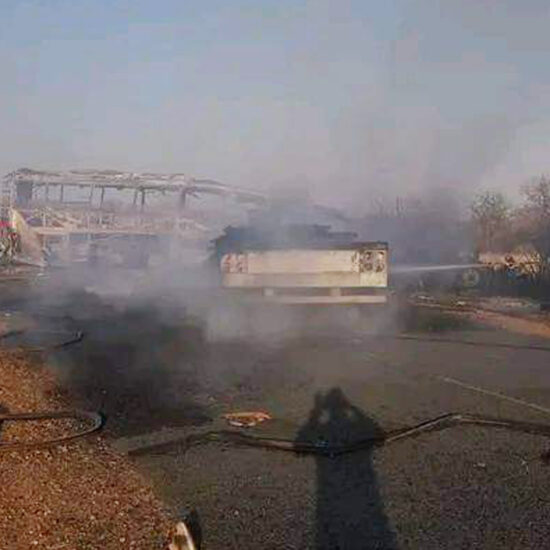
A Nova Scotia paramedic is speaking out about the conditions those in his profession are facing as paramedics are becoming essential to “hallway medicine” amidst a strained health-care system.
Scott Sturgeon, an advanced care paramedic, has been with Nova Scotia Emergency Health Services for 23 years. In that time, he’s seen dramatic changes to the job, including a growing problem with offload delays at the province’s emergency rooms.
“I’ve seen colleagues and done it myself where I’ve gone in (to the ER) with my first patient on a run of a 12-hour shift and stayed in the hallway with them for 12 hours,” he said.
Read more:
‘Unimaginable’ – Couple waits 2.5 hours for ambulance after injury at Halifax park
Read next:
More than 50,000 Canadians have died from COVID-19 since pandemic began
What’s even more shocking, he says in some cases, is that he’ll “hand off” the patient to a night crew and then “sometimes inherit that very same patient again 12 hours after that.”
This form of so-called hallway medicine is leaving paramedics like Sturgeon with what he describes as “moral injury.”
“To hear something of an acute nature, of an emergent nature, go out and not have there be any resources, not to be able to do anything about it — it’s difficult for us to handle,” he said.

Not only is it difficult mentally, but physically as well.
Paramedics are being faced with a growing increase in calls, which leaves them no time for personal care.
“When I clear a call, I am assigned to get another call. And my only chance to go to the bathroom even is to stop at a gas station while I’m en route to yet another residence,” he said.
“I don’t get my lunches, I’m quite often in overtime. It’s just a pace that people can’t … they can’t keep up.”
Read more:
N.S. unveils emergency room plan, nurse practitioners to deliver care in ERs
Read next:
U.S. FDA proposes annual COVID-19 vaccinations for most Americans
Earlier this month, the province unveiled a slate of actions they say will improve emergency care, after the stories of two women who died following seven-hour-long waits in ERs shook the province.

The health department says it will begin assigning physician assistants and nurse practitioners to provide care in emergency departments.
It will also have teams led by doctors focusing on getting patients out of ambulances and into ERs faster, and will add care providers and patient advocates in waiting rooms.
But there are questions about whether the plan will work if there aren’t enough health-care workers.
Their union says it’s a problem that has been building for a number of years.
Kevin MacMullin, business manager for International Union of Operating Engineers (IUOE) Local 727, says there is a shortage of paramedics. There’s a global demand for them, he says, and many have retired or left the province for work.
“Our professional paramedics have done an outstanding job in this province. And that’s why they’re sought after so highly by other provinces. That’s why they want them. They’re doing an astonishing job under the worst circumstances you could find,” said MacMullin.
He believes what’s key is more attention paid to employee retention.
“If you don’t retain your employees, then you’re just playing catch up all the time. And if you retain your employees, give them good benefits, give them good money, they’ll spread the word and somebody who has left will probably come back. A lot will probably come back.”

The shortage of family physicians and primary care providers in the province also contributes to the problem.
Sturgeon says being a paramedic is a rewarding job when they do what they’re “designed to do”: intervene in emergency situations.
“But the reality is that the ambulance is being used by a large portion of the population to fill in gaps for primary care,” he said.
“So we’re being used kind of like a physician, and we’re not physicians … and we’re being asked to do that with regularity.”
Meanwhile, Sturgeon says the situation is difficult and currently, rural communities are paying the price.
“As those ambulances are held in offload, the rural communities that normally have an ambulance end up being pulled into our geographical area. Because statistically, that’s where the next call is going to be,” he explained.
It’s a ripple effect that Sturgeon says needs to be addressed with infrastructure and community support to ensure that when the public needs paramedics, they can be there.
– with a file from Karla Renic
© 2023 Global News, a division of Corus Entertainment Inc.
















